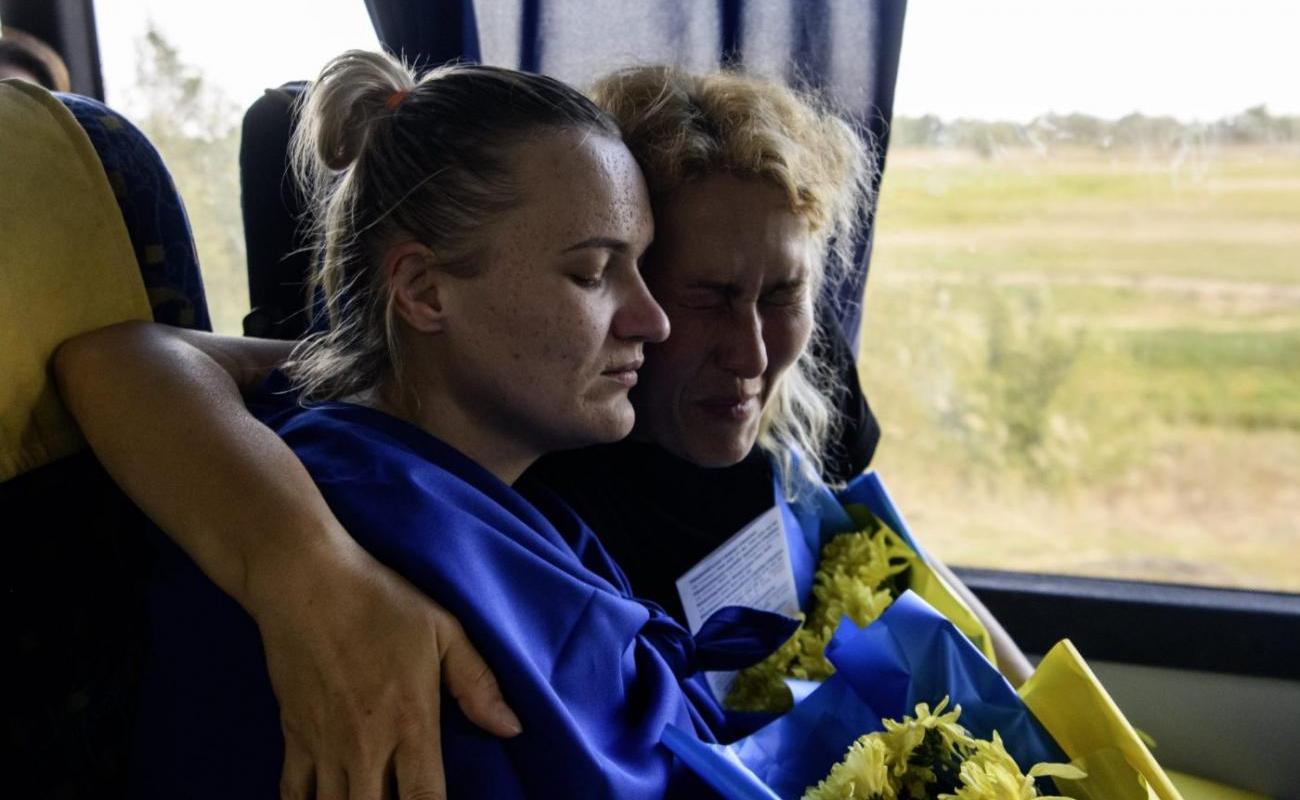The Plague of Sexual Violence Against Ukraine’s Prisoners of War

Ukrainian prisoners of war are suffering sexual violence and rape, compounded by a suffocating silence that isolates them from the world.
“I was taken prisoner in May 2022, and we ended up in the so-called colony in the settlement of Olenivka, in the occupied Donetsk region. First of all, we were stripped, and the woman inserted her fingers into my vagina. After that, they led us, girls, to the other colony workers, who also forced us to undress.
“We could hear the men being raped in the corridor of the isolator. They were raped in unnatural ways,” a former Ukrainian Prisoner of War (PoW) recounted.
“After our transfer to Taganrog [in Russia], we were forced to undress right in the corridor, where there were many male guards. There were frequent threats of sexual violence — the female guards threatened to call a convoy that would rape us.”
There have been numerous harrowing reports from prisoners of war held by the Kremlin. For many survivors, the trauma and dehumanization they endured make it impossible to revisit these memories, often silencing them altogether.
A report from the UN Office of the High Commissioner for Human Rights (OHCHR) revealed that 39 out of 60 male prisoners of war it had interviewed said they were subjected to sexual violence during their internment.
The report further details threats of rape, castration, and beatings, also highlighting repeated forced nudity and other forms of torture, including interrogations and checks for patriotic tattoos, which were often forcibly scraped off.
In Russia’s invasion of Ukraine, sexual violence has been weaponized as a tool against prisoners of war (PoWs) to inflict profound psychological scars. Survivors face an unrelenting internal struggle as they attempt to process the trauma that can shatter one’s identity.
Many prisoners held in Taganrog recounted instances of male soldiers having been beaten and raped. It is widely acknowledged that male PoWs in Ukraine have been subjected to sexual violence at alarming rates, with even more cases being unreported due to the stigma attached to gender-based violence (GBV).
These accounts, though deeply personal, reflect a grim reality for countless Ukrainian PoWs—a widespread and largely hidden campaign of abuse that thrives in silence. The immense pain and fear surrounding these crimes make it almost impossible for many to share their stories, complicating our search for those willing to speak out.
“We also need to ensure that survivors get the help they need. We’re talking about deep, long-term trauma — physically, mentally, and emotionally. So, it’s vital to create a full support system for these victims, which includes medical care, psychological rehabilitation, and legal assistance,” says Veronika Velch, CEO of Amnesty International Ukraine. “It’s not enough to just acknowledge the violence—they need ongoing help to rebuild their lives.”
The critical role of human rights organizations in Ukraine is not just in providing physical assistance but also in helping to break the silence through storytelling. “Victims are often too afraid to speak out, and there’s a real stigma attached to talking about sexual violence, especially for men. But if we don’t have open, honest discussions about what’s happening, how can we expect to see real change?”
Those who share their stories, even anonymously, empower others to do the same, making their voices crucial for raising awareness and changing public attitudes.
So, what’s needed? We should prioritize documentation of PoW abuse and other acts of conflict-related sexual violence. Testimony needs to be gathered along with other evidence to support future legal proceedings, and strengthen international mechanisms to prevent these crimes.
In this way, survivors of these terrible crimes can be fully integrated into the peace-building process, while ensuring justice is served and that a deterrent is established against these grotesque assaults on human dignity.
Daniel Gaffin is a Program Assistant with the Center for European Policy Analysis (CEPA). Daniel holds a B.A. in Political Science from James Madison University.
Lera Burlakova is a Ukrainian journalist and a veteran. She lives in Kyiv. She was previously a Democracy Fellow at the Center for European Policy Analysis (CEPA.)
Europe’s Edge is CEPA’s online journal covering critical topics on the foreign policy docket across Europe and North America. All opinions are those of the author and do not necessarily represent the position or views of the institutions they represent or the Center for European Policy Analysis.
